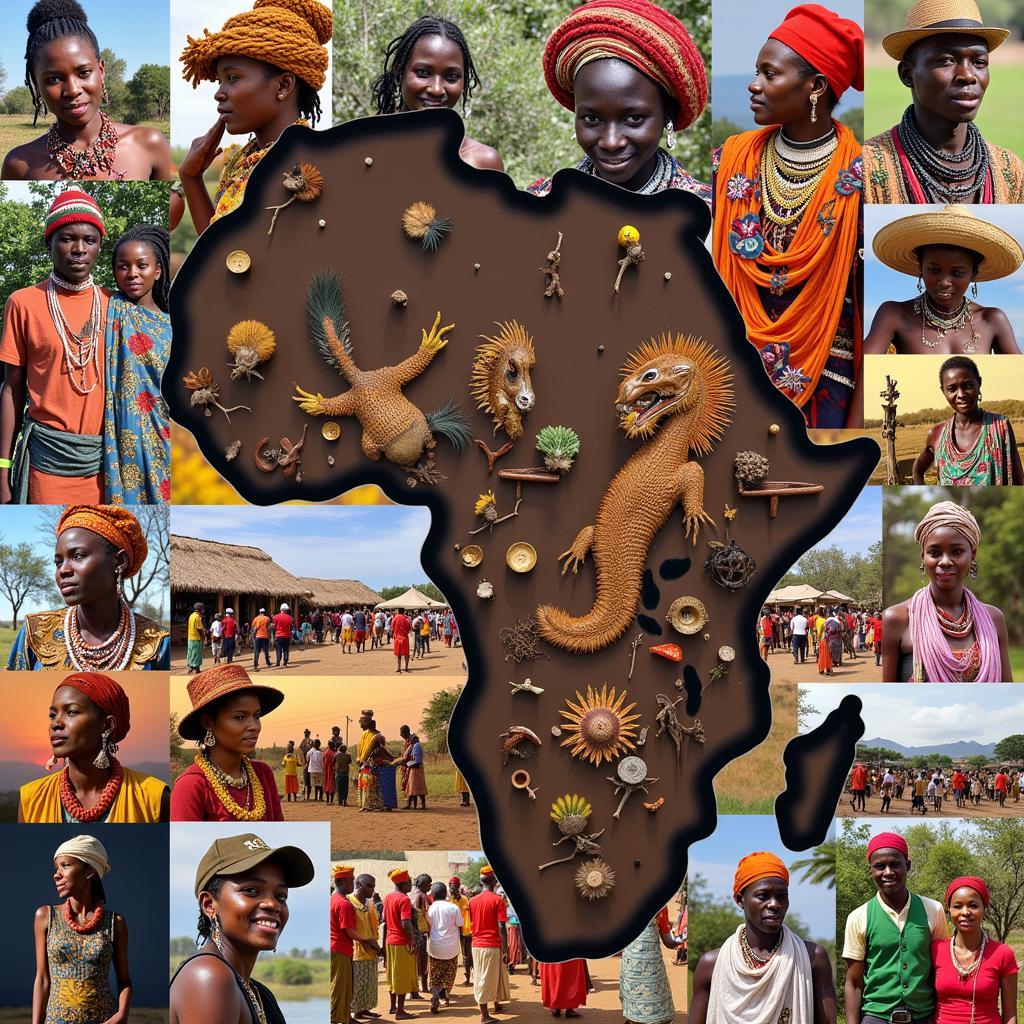Exploring the African Alphabet Book: A Journey Through Language and Culture
An African Alphabet Book opens a window into the rich tapestry of languages and cultures across the continent. Within its pages, children and adults alike can discover a world of vibrant storytelling, fascinating traditions, and the diverse sounds that make up the heart of Africa.
Uncovering the Diversity of African Languages
Africa boasts an incredible linguistic landscape, with over 2,000 languages spoken across its 54 countries. An African alphabet book serves as an introduction to this linguistic diversity, showcasing not only the individual letters but also the unique sounds and pronunciations that characterize different language families. From the click consonants of the Khoisan languages in Southern Africa to the tonal variations of Niger-Congo languages in West Africa, each language tells a story of its own. Many African alphabet books introduce children to common words and phrases in different languages, fostering an appreciation for multilingualism and cross-cultural understanding. This early exposure to language diversity is crucial in a globalized world.
Beyond the ABCs: Cultural Immersion Through Storytelling
African alphabet books often go beyond simply teaching the alphabet. They weave in cultural elements through traditional stories, folktales, and proverbs. These narratives offer glimpses into the values, beliefs, and customs of various African communities. For example, a book might introduce the letter “A” with the story of Anansi the Spider, a popular character in West African folklore known for his wit and cunning. This approach not only makes learning the alphabet more engaging but also fosters a deeper appreciation for African cultural heritage.
Choosing the Right African Alphabet Book
The wide variety of African alphabet books available can be overwhelming. Here are some factors to consider when choosing a book:
- Authenticity: Look for books authored or illustrated by African creators. This ensures that the cultural representations are accurate and respectful.
- Language focus: Some books focus on a specific African language, while others offer a broader overview of several languages. Choose a book that aligns with your learning goals.
- Age appropriateness: Select books with illustrations and language that are suitable for the intended age group.
- Educational value: Consider books that incorporate cultural elements, such as traditional stories and proverbs, to provide a richer learning experience.
- Visual appeal: Engaging illustrations can enhance the learning experience and make the book more enjoyable for children.
Why Representation Matters in Children’s Literature
Representation in children’s literature is vital, especially when it comes to representing the diversity of Africa. african countries do not border in written in c Accurate and positive portrayals of African cultures help children of African descent see themselves reflected in the stories they read, fostering a sense of pride and belonging. It also helps children from other backgrounds develop a greater understanding and appreciation for different cultures.
African Alphabet Books: A Gateway to Lifelong Learning
An African alphabet book is not just a starting point for literacy; it’s a gateway to a lifelong journey of learning about Africa’s rich history, diverse cultures, and captivating stories. It’s a celebration of the continent’s linguistic diversity and a testament to the power of storytelling. african animals alphabetical list From learning about african animals a z to understanding the history of african countries where slaves came from, or even learning more about a short description of the african flag, there is a wealth of knowledge to be discovered.
Dr. Abena Osei, a renowned linguist specializing in African languages, emphasizes the importance of early exposure to diverse languages: “Introducing children to African languages through alphabet books is not just about learning the ABCs; it’s about opening their minds to a world of different sounds, cultures, and perspectives.”
Another expert, Dr. Kwame Nkrumah, a prominent historian and educator, adds, “African alphabet books are a powerful tool for preserving and transmitting cultural heritage. They help ensure that the stories and traditions of Africa are passed down to future generations.”
In conclusion, the African alphabet book is more than just a learning tool; it’s a celebration of language, culture, and the vibrant tapestry of African Life. Choosing the right African alphabet book can spark a lifelong love of learning and a deeper appreciation for the diversity of the African continent.
FAQ:
- What is the best age to introduce an African alphabet book?
- Are there African alphabet books that focus on specific languages?
- Where can I find authentic African alphabet books?
- How can I use an African alphabet book to teach my child about African culture?
- What are some popular characters or stories featured in African alphabet books?
- Are there resources available to help me pronounce the words in different African languages?
- How can I incorporate African alphabet books into a broader curriculum about Africa?
For further assistance, please contact us at Phone: +255768904061, Email: [email protected] or visit our office at Mbarali DC Mawindi, Kangaga, Tanzania. We have a 24/7 customer service team.


